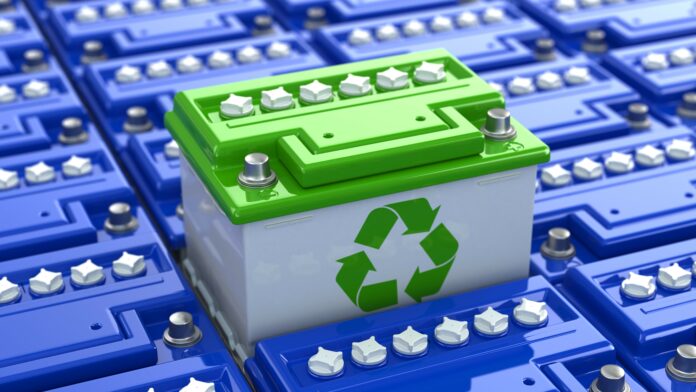While electric vehicle sales have nearly doubled in the past year, they still represent just over 5% of vehicles on the road, and many of the other drivers are still guessing at how they work.
Some of the biggest misconceptions about EVs are related to batteries and battery recycling, according to a new survey(Opens in a new window) of 1,004 randomly selected US consumers by Ascend Elements. Almost half (47%) believe that EV batteries cannot be recycled at all, and they will pile up in landfills full of toxic, leaking, old batteries. However, an impressive 39% are aware that batteries can be recycled and rehabbed over and over to make new EV batteries without performance loss.
“We’ve encountered many myths and misconceptions about electric vehicles and, in particular, EV battery recycling,” says Roger Lin, VP of Global Marketing and Government Relations at Ascend Elements. “The industry has made terrific advances in the efficiency and cost-effectiveness of lithium-ion battery recycling, but these false narratives about EV batteries continue. [It should be] unthinkable to let a lithium-ion battery go to landfill. They are just too valuable.”
EV batteries sit at the base of the vehicle between the four wheels.
(Credit: Golden Sikorka/Getty Images)
The top five minerals inside the batteries—lithium, cobalt, manganese, nickel, and graphite—are known as “critical minerals.” They are expensive, and largely sourced via environmentally taxing mines mostly located outside the US. About 45% of respondents think the US isn’t competitive when it comes to manufacturing lithium-ion EV batteries, and they’re right: China accounts for 70% of global battery production, according to a Congressional Research report(Opens in a new window).
“The extent to which China is way ahead of everyone else is a shocker,” said Michael Dunne, CEO of electric vehicle consultancy ZoZoGo(Opens in a new window) when we interviewed him earlier this year. “The United States isn’t used to being the underdog, and that’s where we are when it comes to electric vehicles and batteries. They have the largest factories and so many companies.”
Efforts to build out America’s battery business are underway. President Biden has allocated $2.8 billion for new manufacturing facilities and research, and crafted the 2023 EV tax credit requirements such that qualifying vehicles must have a certain percentage of domestically sourced batteries.
(Credit: Fortune Business Insights)
New recycling facilities like Redwood Materials(Opens in a new window), run by Tesla co-founder JB Straubel, are also coming online with the promise of creating a circular domestic battery supply chain. Another is Li-Cycle(Opens in a new window), which has three plants in the US (New York, Arizona, and a new one Alabama), and one in Ontario, Canada, with a combined processing capacity of 30,000 tons a year, Electrek reports(Opens in a new window).
Recommended by Our Editors
Ideally, all end-of-life passenger and commercial EV batteries will be routed to one of these plants. But we’re far from that. “Long term, we can see a potential where recycling starts to bring down the cost of [battery] materials, but at the moment we’re a relatively small part of the ecosystem,” Tim Johnston, co-founder of Li-Cycle, said in an April 2021 interview (Opens in a new window)with CNBC.
The study had a few other noteworthy findings unrelated to batteries:
-
53% of US consumers think EVs are more expensive to repair than gas-powered vehicles. In reality they are cheaper: one study(Opens in a new window) found EVs require 31% less maintenance, and when they do the bill is 22% less. That’s because they have far fewer moving parts and generate less heat and vibration that causes degradation.
-
50% of US consumers say owning an EV means they’ll need to wait in long lines for charging stations. However, 80-90% of EV owners primarily charge at home.
-
41% of US consumers think electric vehicles are too small and slow compared to gas-powered cars. Actually, EVs are known for their standout acceleration compared to gas-powered cars, making electric vehicles the quickest in the world, Car & Driver reports(Opens in a new window).
-
51% of US consumers say lithium-ion electric vehicle batteries don’t offer as much range as internal combustion engines. This one depends on the vehicle, although generally it is the case that EVs require more frequent fueling until battery energy density improves.
But overall, most people surveyed have an increasingly positive outlook on electric vehicles. More than half (53%) say their attitude toward them is more favorable now than it was three years ago, and 46% say EVs will outsell gas-powered cars in their lifetime.
Get Our Best Stories!
Sign up for What’s New Now to get our top stories delivered to your inbox every morning.
This newsletter may contain advertising, deals, or affiliate links. Subscribing to a newsletter indicates your consent to our Terms of Use and Privacy Policy. You may unsubscribe from the newsletters at any time.
Visits: 0














